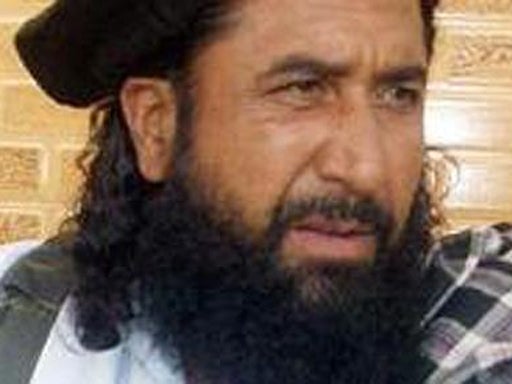Pakistan frees Taliban leader Mullah Abdul Ghani Baradar in bid to ease tensions
Mullah Abdul Ghani Baradar is the most senior Afghan detainee to be released

Your support helps us to tell the story
From reproductive rights to climate change to Big Tech, The Independent is on the ground when the story is developing. Whether it's investigating the financials of Elon Musk's pro-Trump PAC or producing our latest documentary, 'The A Word', which shines a light on the American women fighting for reproductive rights, we know how important it is to parse out the facts from the messaging.
At such a critical moment in US history, we need reporters on the ground. Your donation allows us to keep sending journalists to speak to both sides of the story.
The Independent is trusted by Americans across the entire political spectrum. And unlike many other quality news outlets, we choose not to lock Americans out of our reporting and analysis with paywalls. We believe quality journalism should be available to everyone, paid for by those who can afford it.
Your support makes all the difference.The highest-ranking member of the Afghan Taliban jailed in Pakistan has been freed as part of attempts by the new government of Nawaz Sharif to ease tensions with neighbouring Afghanistan and to push forward talks with the insurgent group.
Officials said that Mullah Abdul Ghani Baradar, the former deputy to the Afghan Taliban leader Mullah Omar, had been set free. The move came weeks after the Afghan President, Hamid Karzai, asked for Baradar’s release during a visit to Islamabad.
The US had pressured Pakistan not to release Baradar over concerns he would return to the Taliban, but the State Department also wants Afghan authorities to strike a peace deal with the Taliban before its troops withdraw next year.
The Afghan administration welcomed Pakistan’s gesture on Friday. Muhammad Ismail Qasimyar, a member of the Afghan peace council, said he was “hopeful” that Baradar could now “play an important role in the peace process”.
The release of prisoners has been a longstanding demand of Mr Karzai’s government. Over the past two years, Pakistan has released a trickle of junior members, appearing to comply with Kabul’s demands but retaining influence over more senior members. Baradar’s release signals a willingness by the Pakistanis to co-operate more fully with their Afghan counterparts.
As one of the founders of the Afghan Taliban, Baradar is thought to have the clout to persuade the reluctant insurgent group to negotiate with the Afghan government.
But it is far from clear whether his release will alter the fortunes of a virtually non-existent peace process with the Afghan Taliban. Some analysts say that the Afghan Taliban will be suspicious of anyone tainted by their proximity to the Pakistani authorities.
It is also unclear whether Baradar has preserved his influence among the insurgents. If he cannot leverage his seniority within the organisation, or secure his one-time mentor Mullah Omar’s backing for peace talks, the move is likely to swiftly founder.
Join our commenting forum
Join thought-provoking conversations, follow other Independent readers and see their replies
Comments